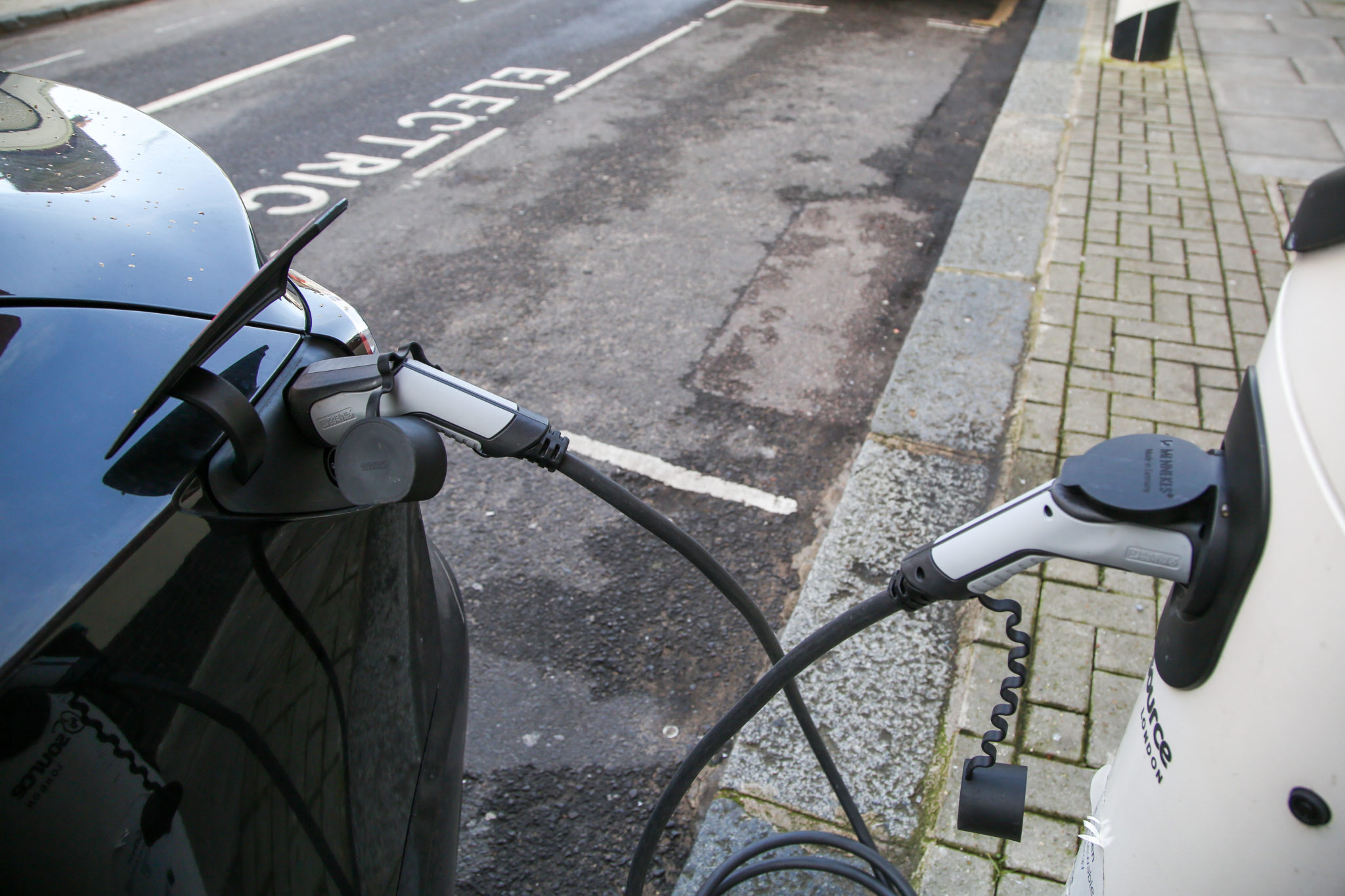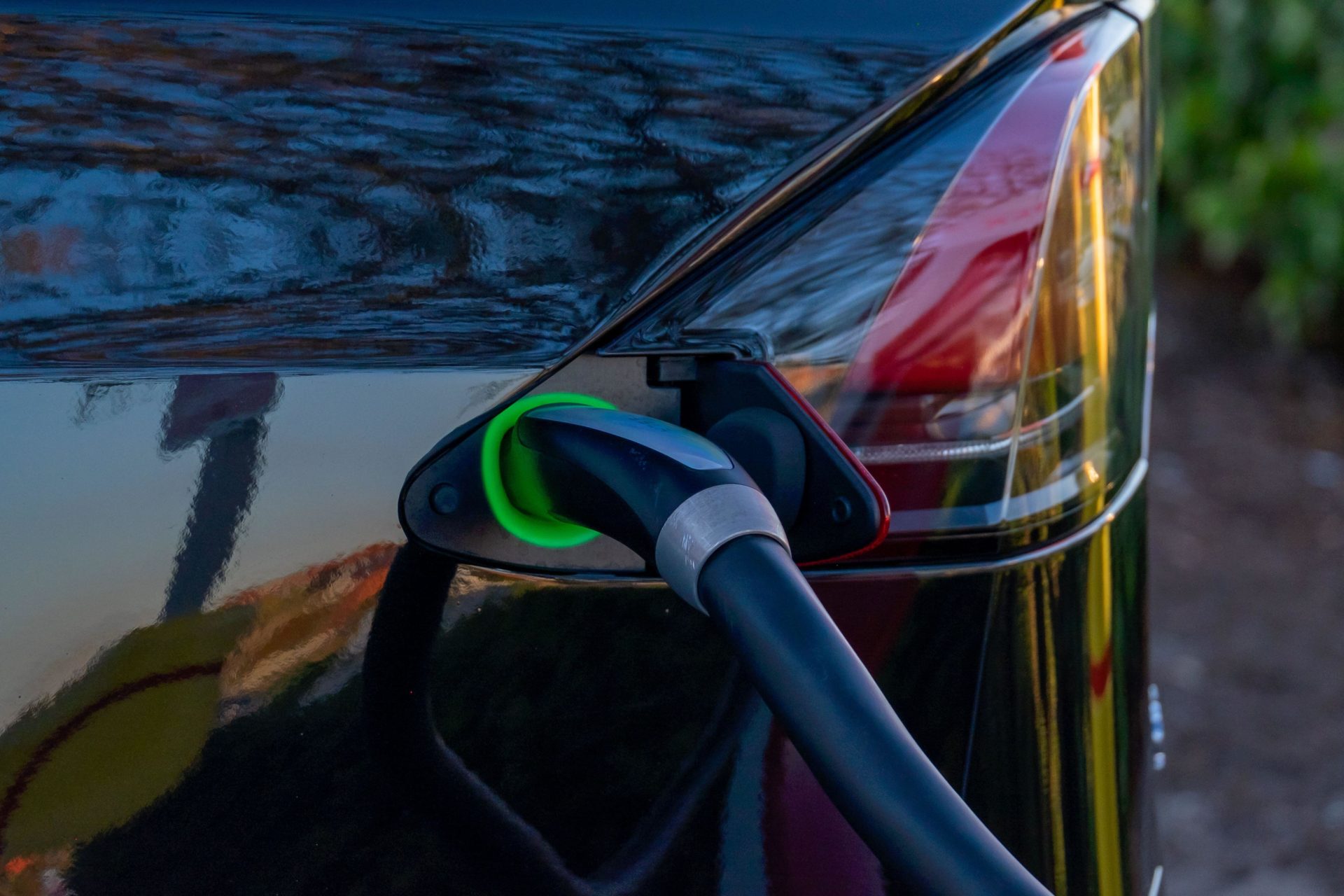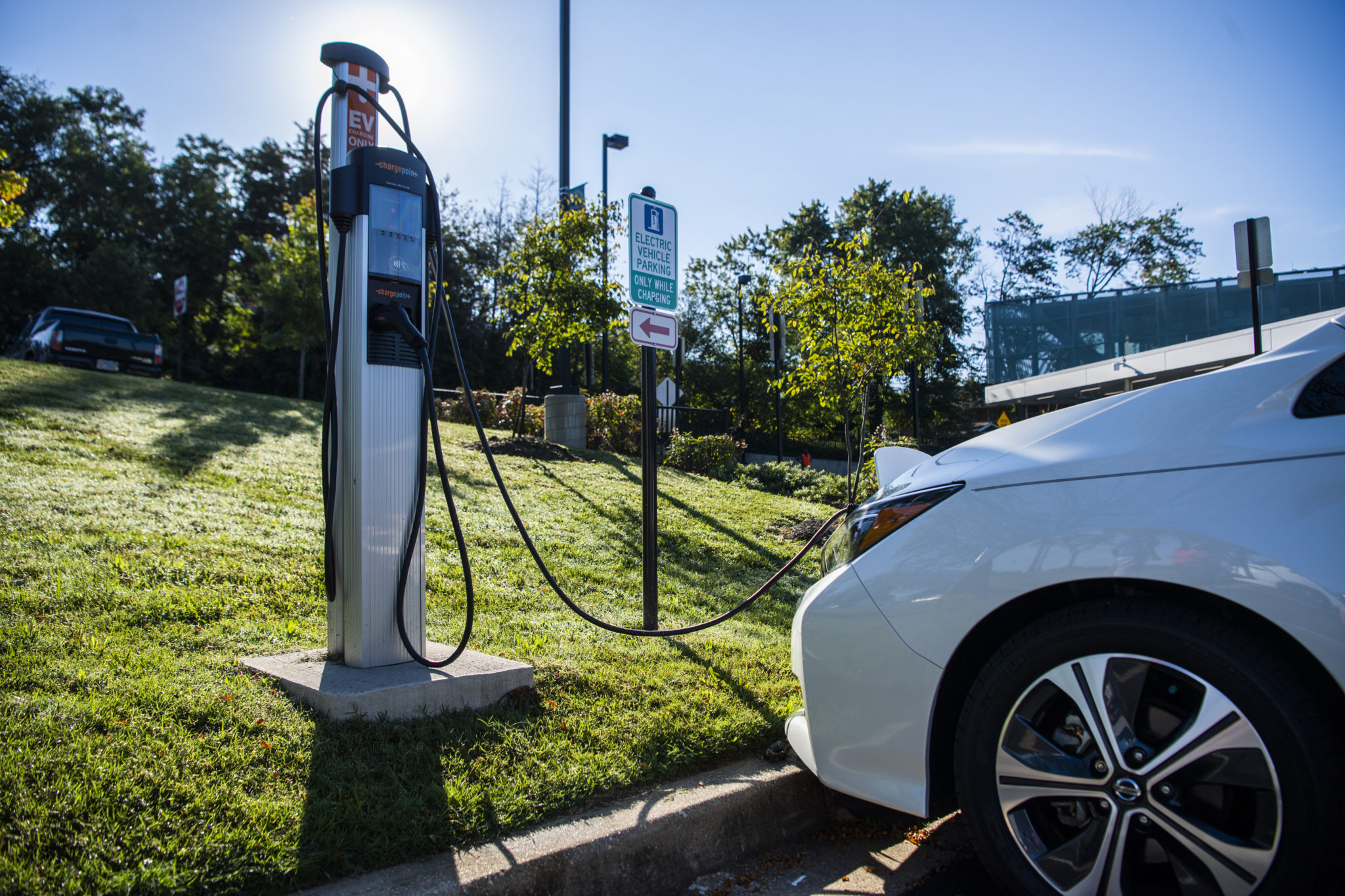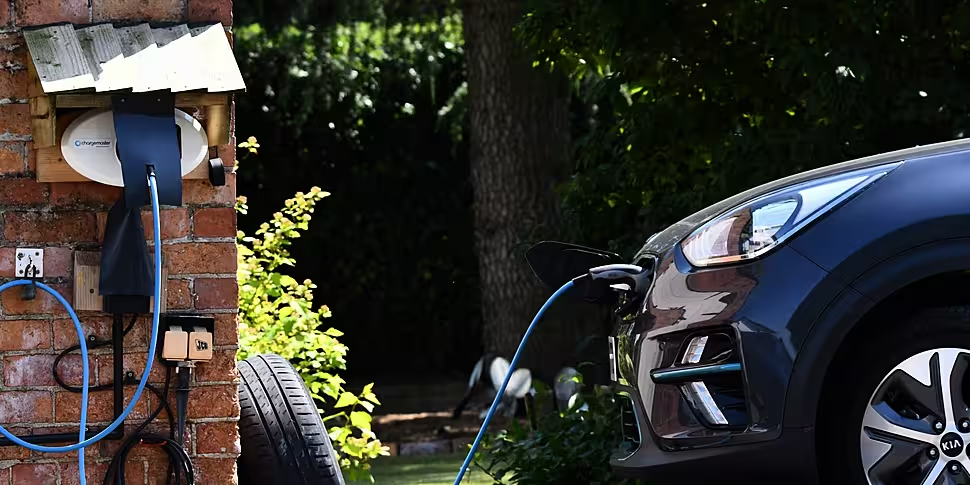The Government grant for electric vehicles should be increased back to €5,000, the Society of the Irish Motor Industry has said.
In 2021, Transport Minister Eamon Ryan announced a target of 936,000 EVs on Irish roads by the end of the decade.
Last year, 22,493 new EVs were sold but newly released figures have revealed only 9,020 have been sold so far in 2024 - nearly 20% down on the same period in 2023.
Speaking to Josh Crosbie for The Pat Kenny Show, Society of the Irish Motor Industry Director General Brian Cooke said a variety of factors influence why fewer people are buying EVs.
“There are some challenges in terms of the initial price is higher than the traditional vehicle,” he said.
“But the actual cost of running an electric vehicle is lower - particularly if you can avail of home charging.
“We did see the Government grant last year reduced from €5,000 to €3,500; I think it’s not just the money it’s the impact on consumers, their behaviour.”
 An electric Vehicle charging station. Image: SOPA Images/SIPA USA/PA Images
An electric Vehicle charging station. Image: SOPA Images/SIPA USA/PA ImagesMr Cooke said while EVs are undoubtedly the future, an EV “isn’t for everybody” and higher incentives would help.
“We’re actually back at 2022 sales levels, so for a period of time, until we get sales back up to 2023 levels which is nearly one-in-five new cars sold, they should look at increasing that grant back up to €5,000,” he said.
“Also, the home charger grant was reduced and the free toll incentive went on January 1st.”
Mr Cooke also described the second hand market as “very volatile” but said it should stabilise in the medium-term.
“It’s such a small number; it’s an immature market, we’ve seen some discounts on new cars and they’re all impacting on the second part of the capital costs - which is the residual of the used vehicle,” he said.
“So, until that market becomes more evolved and more stabilised, it won’t normalise, so it definitely is difficult for dealers and customers.”
 A new electric vehicle.
A new electric vehicle.Down in Bunclody, County Wexford, Josh found a certain amount of scepticism about EVs still exists.
“I’m not really sure, it’s hard to know, you hear a lot of false things about them,” one man told him.
“You can get a charge locally but I’d be drawing stuff in trailers; I don’t think they’re economical for the likes of that.”
The driver of a diesel car said she did not like them and hoped she would never have to drive one.
“They’re just behind you and you hear this ‘nnnnn’ sound and that’s it,” she said.
“Not many people around here have them, so I wouldn’t.”
 An EV being charged. Image: Tom Williams/CQ Roll Call/Sipa USA)
An EV being charged. Image: Tom Williams/CQ Roll Call/Sipa USA)Another driver said he bought a car only three months ago and had considered going electric before decided against.
“I didn’t consider it for long because I’m just afraid of the whole recharging situation,” he said.
“There are hardly any charging stations around Enniscorthy around where I live anyway.”
Instead, he purchased a hybrid which he liked because it has a “green side to it”.
“I wouldn’t want to be going on a 100, 200 km journey, which I do fairly often, without being absolutely certain that I can charge up in five minutes, the same way you can fill up with petrol,” he said.
In 2022, 19.3% of Ireland’s emissions were generated by fuel combustion engines.
You can listen back here:
Main image: An EV charging. Alamy.com









